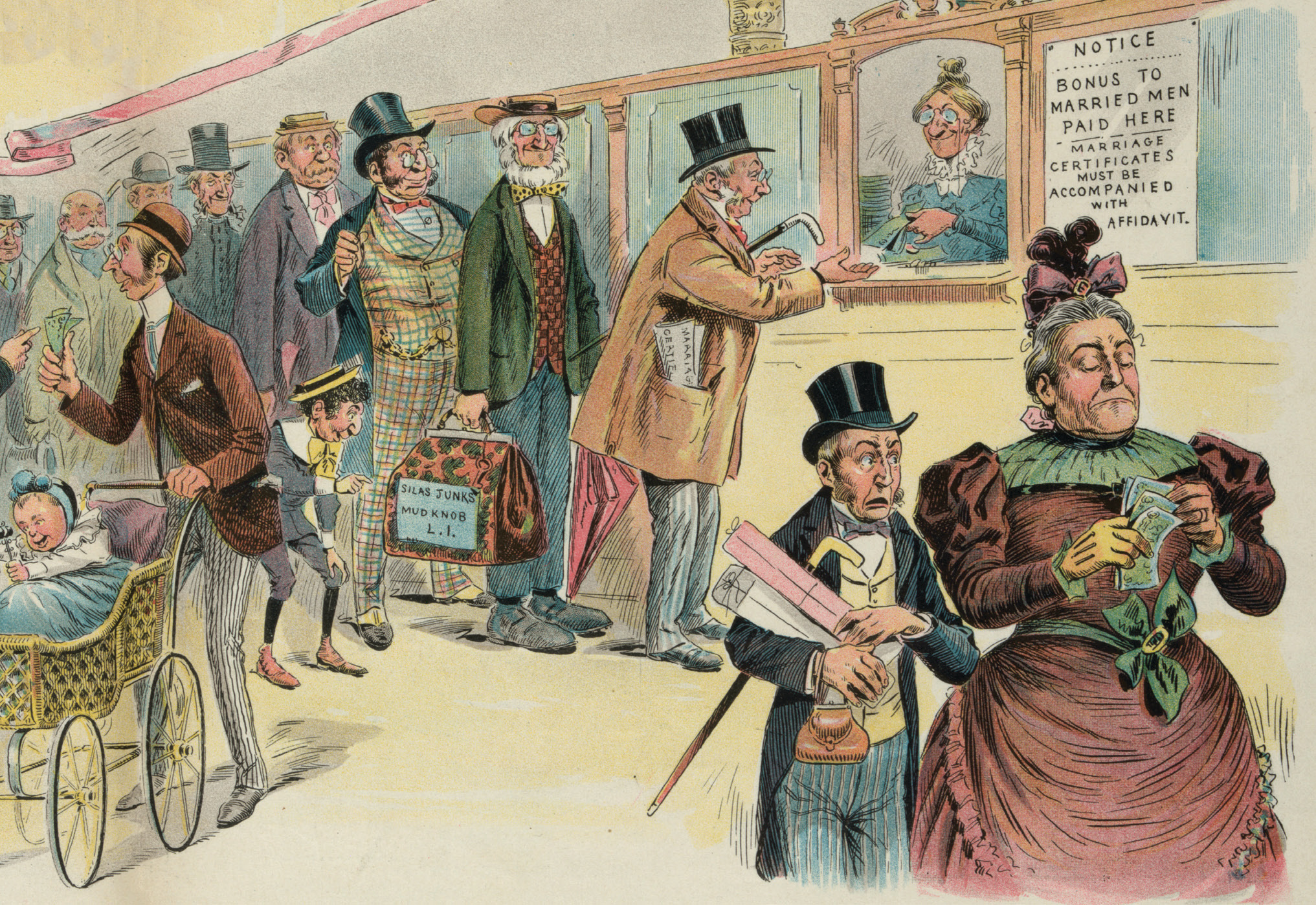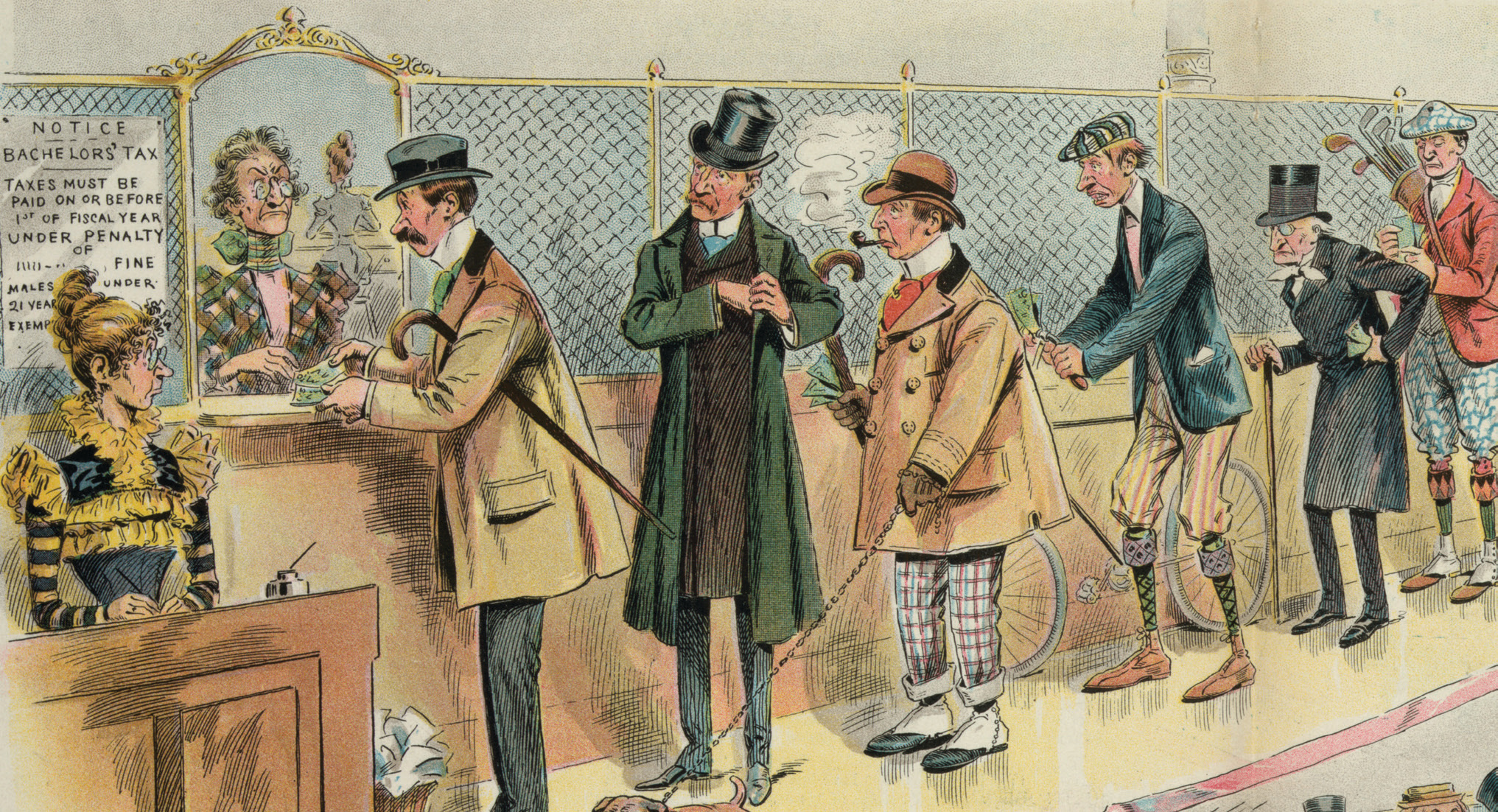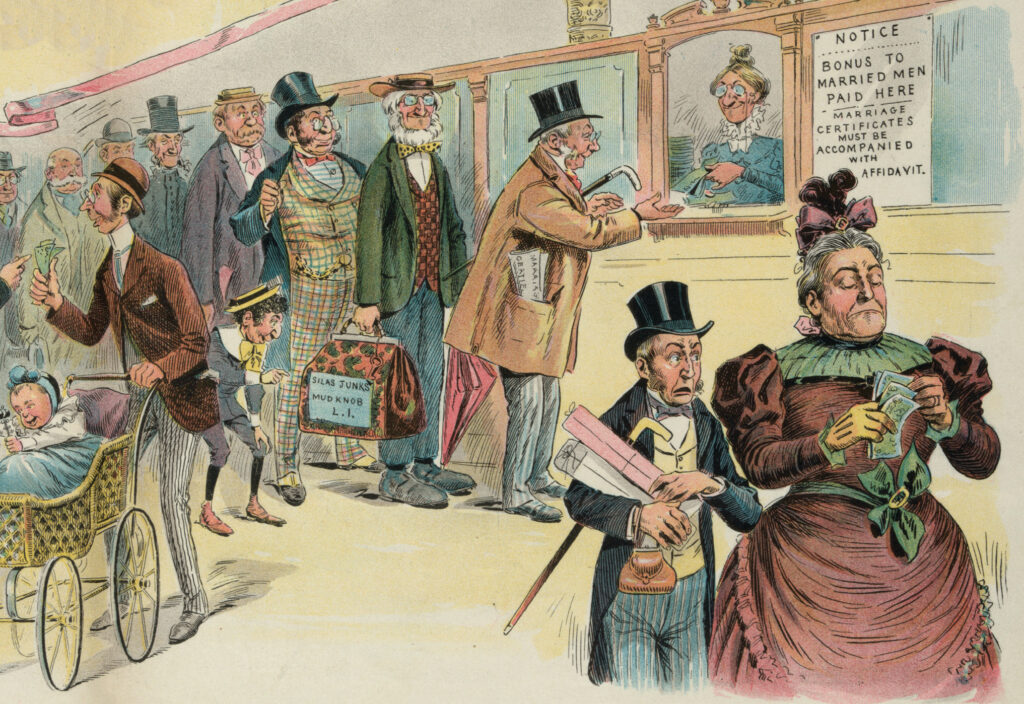I thought it was a joke when I first heard the phrase. But, as it turns out, generations of Tennessee lawmakers — as well as those in other states — have argued about the bachelor tax.
Before I go any further, let me explain that this column may offend the sensitivities of some current readers. In the 1800s, most women remained in their parents’ households until they married. Young ladies who were single were known as “spinsters”; middle aged and older women who remained unmarried were dubbed “old maids.” Many in the older generation fretted about the existence of too many bachelors, spinsters and old maids. This fretting led to ideas on how to create a financial incentive for young men to marry and have children.
In 1821, Missouri became the first state to pass a tax on bachelors – taxing unmarried males 21 and older $1 a year. Five years later, Tennessee State Sen. Lewis Reneau of Sevier County proposed a much higher bachelor tax here. Reneau favored an annual tax of 25% on the estate of any young man who had not yet taken a wife. “All men who enjoy the liberty and civilized life should conform themselves to the customs by which these blessings are secured,” the bill declared. Money raised from the tax would be distributed to the unmarried women in the county in which it was collected.


Reneau’s bill did not pass. However, a generation later, in 1849, another legislator proposed a bachelor’s tax. “Our good-looking bachelor friends must look out,” the Memphis Daily Eagle quipped at the time. “There is manifestly a conspiracy on foot against them.” That bill didn’t pass either. Bachelor taxes were proposed, and rejected, in 1855, 1875, 1885 and 1895. “The bachelor is a useless sort of animal and he ought to pay a tax for the privilege of incumbering the earth with his uncharming presence,” opined the Knoxville Tribune in 1895 (tongue in cheek, obviously).
By the turn of the century, the bachelor tax was a frequent topic of discussion across the country. In 1907, the New York Herald reported that at least seven states — Illinois, Missouri, Massachusetts, Texas, Wisconsin, Indiana and Iowa — were contemplating some version of a tax on bachelors. “The preamble of the (Iowa) bill declares unmarried men are a menace to society; that the morals of the larger cities are degenerating owing to them,” reported the Herald (which makes me wonder, how large were the cities in Iowa in 1907, and just how degenerate could they have been?).
I think the last Tennessee state lawmaker who proposed a bachelor tax was Sen. Harry J. Lovelace of Davidson County, in 1939. “It is the duty of every man to marry and support a wife,” he said. “If one refuses to assume this obligation, then he should be made to contribute to the support of women left unmarried because he and others like him shun wedlock.”
Lovelace’s bill didn’t get a lot of votes but did get attention. The Knoxville News Sentinel published several letters about his proposal, including:
“If there were such a tax, how could a girl be sure her husband hadn’t married her just to avoid paying the tax?” asked George Williams of Morristown.
“To tax the bachelor would make celibacy seem like a luxury, when in reality it is a handicap and a hardship. To tax the bachelor would be an insult to the usefulness of womankind!” wrote Mrs. Andrew Jones of Knoxville.
“A great number of males are caught every year and I think that the few who manage to keep clear should be given a special medal by our state to an outstanding achievement,” said Elbert Lyle of Knoxville.
Lovelace’s bill failed like all the bachelor tax proposals before his. But it would have been interesting to see if Gov. Prentice Cooper — a bachelor himself — would have signed the bill.
When I first learned about this topic, my first reaction was to dismiss the “bachelor tax” as an old-fashioned idea that Tennessee and the United States outgrew after women entered the workforce. But then I pondered the IRS income tax code. Today, couples receive tax advantages when they marry and more tax advantages when they have children. We don’t really think of this system as a tax on bachelors, but it kind of is. So in some ways, we do have an unspoken “bachelor tax” today.
Maybe Senator Reneau of Sevier County wasn’t so crazy after all.



